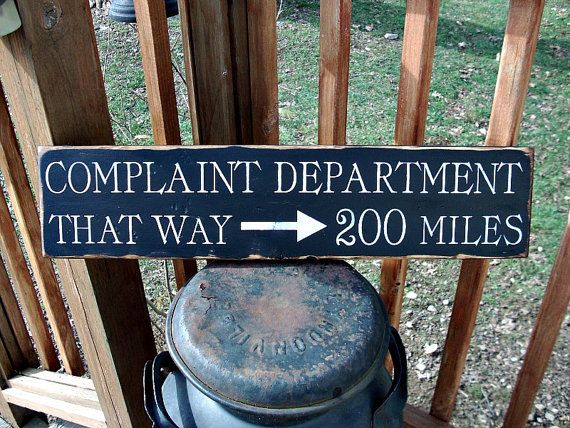Have you got a good complaints process?
I was reading an article in Australian Ageing Agenda about Rae Lamb, Aged Care Commissioner and it struck me that what I think of as common sense complaint handling, (that is, although there may be very difficult decisions to be made, you do so ensuring that they are timely, effective, part of a process and fair). We know that some organisations do not do this. Perhaps as part of a cover-up, or poor processes, or perhaps because they just don’t know how to deal with them.
That is why we need good complaints processes. They protect the individuals, (particularly in the case of aged care services where many are vulnerable and some without advocates in family or friends). They also protect the organisation. No organisation wants to close its doors because of a scandal that they could have addressed long before closing down is the only solution.
Rae Lamb, a former journalist and deputy health and disability commissioner in New Zealand talks about “best practice complaints handling and why providers should say sorry more often”.
Music to my ears. One common way to ruin or at least badly tarnish your reputation is to avoid a very easy sorry or to drag on a complaint process in a way that makes the complainant more upset. Worse still no complaint process at all. Anything could happen.
The article includes Rae reflecting on her decade of experience in complaints management in New Zealand.
Lamb says she is convinced it is best to resolve a complaint early, and to do so directly between the parties involved.
“By the time a complaint in aged care, health or disability comes to a complaints scheme, and certainly by the time it gets to an office of review… It’s becoming too late to get a satisfactory outcome for the people involved.”
Lamb says this puts the onus on providers to respond well to complaints and facilitate early and direct resolution as much as possible.
“Service providers also need to realise that doing a good job of complaints is the quid pro quo of a resolution-based complaints scheme. You have a system now where the focus, when something goes wrong, is on fixing deficiencies and addressing what has gone wrong. It is very seldom there will be a punitive outcome for the service provider.”
However, for the public to have faith in that kind of system, they need to see their complaints will make a difference, that their concerns will be resolved appropriately, where necessary, and that there is improvement to care, Lamb says.
She goes on to talk about the importance of an apology
Offering an apology where deficiencies have been established is an important part of good practice, and can provide the acknowledgment and individual resolution a complainant may be looking for, Lamb says.
An apology can be just as important as receiving an explanation of what happened and an assurance that the necessary steps have been taken to correct the matter and improve care, she says.
Open discussion about complaints is also critical to promoting a culture that encourages organisations to learn from mistakes. “Complaints are so rare that they need to be valued,” she says.
As a Public Relations Consultant, I am very aware of: both the need to mitigate/reduce number of complaints through risk management procedures such as policies, procedures, complaint management etc.
And the damage any poor response to a complaint can cause. Especially when the public perceive that the complaint could and should have been dealt with quickly; when it is serious, when vulnerable people are concerned; and where there are legal obligations for mandatory reporting.
Aged Care services and facilities are working with vulnerable people, and often with their worried and anxious friends and family members. A robust, proactive and transparent complaints service, a willingness to apologise and address problems; an ability to report on how systemic changes have been made to systemic issues all go a long way to greater confidence for the consumer.
How do people choose which service to use? By talking to each other about it.
I tried to find a reliable statistic of the importance of word of mouth marketing – having consumers say good things about you to other consumers – they vary, but all agree that word of mouth is important and needs to be taken into consideration.
No matter what your business, organisation or service provides, complaints will arise and if you want to keep your good reputation intact you need to have a transparent, clear, consistent and fair process to deal with them.
If you need help with any aspect of public relations please feel free to contact us, we’d be more than happy to help.


